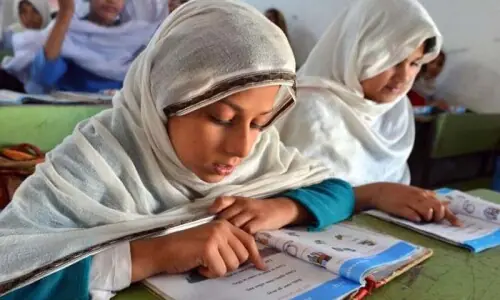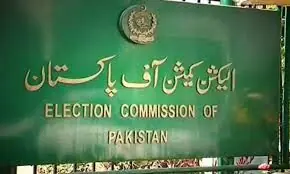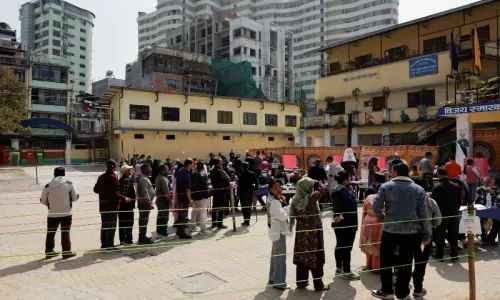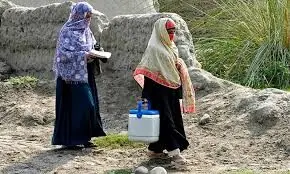
GENERAL elections due on Wednesday have already taken a frightful toll on innocent Pakistani lives. And those who fear that democracy is being hollowed out in favour of an illiberal polity are watching the journey with trepidation at home.
A concerned friend, the wife of a former diplomat posted in India, expressed her hope for Pakistan through a lovely poem by Kahlil Gibran. She wrote on her Facebook wall that as Pakistan approached the elections the poem could make her people think about the kind of nation they aspired to be.
I wrote back that Gibran’s words applied to India too. The lines are worth quoting:
“Pity the nation that is full of beliefs and empty of religion.
“Pity the nation that wears a cloth it does not weave, eats a bread it does not harvest. ...
There’s little time to waste. But reflect we must on the poet’s worst fears about a nation’s fall.
“Pity the nation that acclaims the bully as hero, and that deems the glittering conqueror bountiful.
“Pity the nation that despises a passion in its dream, yet submits in its awakening.
“Pity the nation that raises not its voice save when it walks in a funeral, boasts not except among its ruins, and will rebel not save when its neck is laid between the sword and the block.
“Pity the nation whose statesman is a fox, whose philosopher is a juggler, and whose art is the art of patching and mimicking.
“Pity the nation that welcomes its new ruler with trumpeting, and farewells him with hooting, only to welcome another with trumpeting again.
“Pity the nation whose sages are dumb with years and whose strongmen are yet in the cradle.
“Pity the nation divided into fragments, each fragment deeming itself a nation.”
These days, with the Western media dilating on the state of Pakistani democracy, and often not grasping the situation, one is reminded of a run-in that writer Tariq Ali had with the BBC some years ago.
Ali was commissioned to write a play on the execution of Zulfikar Ali Bhutto to be shown on a BBC channel. When he finished writing the play, BBC hands complimented Ali on how it was going to be a great hit. Nasiruddin Shah would play Bhutto, Zia Mohyeddin was chosen for Ziaul Haq’s role and a female actor was readied to play Benazir while another would probably take her mother’s part.
Then suddenly the BBC’s chief editor called for the manuscript. And thereafter it collected dust for days without an explanation.
One day, according to Ali, BBC’s then correspondent in India, Mark Tully, was asked to meet him. He had read the play, but was not sanguine about Ali’s claim in the play that without the approval from the British and US embassies, Zia could never have hanged Bhutto.
Ali turned down Tully’s advice to delete the reference to the embassies. The play showed up in a book titled: The Leopard and the Fox. The leopard was Bhutto, the fox, Gen Zia.
Ali believes that the turnout to protest the hanging was tame as Bhutto’s supporters would not take the risk for a man who had not kept his promise to improve their lot, namely with radical land reforms he had spoken about.
The media is under assault from unnamed state institutions in today’s Pakistan. However, it is debatable how much of this threat is understood by some Western media houses.
Often it seems that the international community’s priorities lie in aligning their policies with the action in Afghanistan, to which Pakistan’s military was and is a conduit.
Reference to India, implicit in the Gibran poem, would appear to be nicely vindicated by the subjugation of the people at their own behest. When Indira Gandhi asked them to bend, they crawled. So goes an observation by an astute politician who was incarcerated in Indira’s 1975-77 crackdown.
Today, again, four years of rule by Prime Minister Narendra Modi have witnessed wilful economic policies and a spate of murderous assaults on independent journalists, students and women, assaults in which Dalits and Muslims have borne the brunt.
Today, there is a chance for the fractious opposition to pull the country out of the woods. For that, they are required to expel their personal ambitions in the absolutely essential interest to restore a hollowed democracy to health.
There was a brilliant speech in parliament by Rahul Gandhi the other day, but his party cannot see beyond his becoming prime minister. His advisers once got him to tear up a proposal that would have made it easier for solid politicians to contest elections despite disputed charges against them.
On the other hand, despite their sense of righteousness and claims of probity, the Congress party cannot come together with Arvind Kejriwal, sworn to wiping out corruption. The left cannot see beyond its allergies with Mamata Banerjee and has spurned her offer of a united front against Modi’s right-wing government.
There’s little time to waste. But reflect we must on Gibran’s worst fears about a nation’s fall.
State institutions have to be made more responsive to democracy in India and Pakistan. Universities and educational outfits have to be fumigated and protected from an obscurantist assault.
The weak and the dispossessed have to be the priority. And in seeking that goal there seems to come to mind a dream mission that alone could salvage our countries from their pervasive suffering.
Not equipped to name a dream team for Pakistan, let’s attempt one for India. Prime minister, the resolute Mamata Banerjee or Mayawati; home minister a determined Mayawati or Lalu Yadav; finance minister, the peerless Arvind Kejriwal; external affairs minister, Nehru’s heir Rahul Gandhi; defence minister, the fearless Hardik Patel; education minister, the reasonable Pinarayi Vijayan; agriculture minister, the hands-on Jignesh Mevani; information minister — abolish the post. It doesn’t go with a free democracy.
No Muslim! Does it matter?
The writer is Dawn’s correspondent in Delhi.
Published in Dawn, July 24th, 2018





























